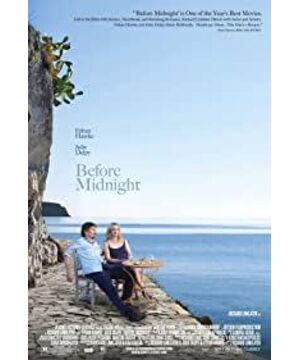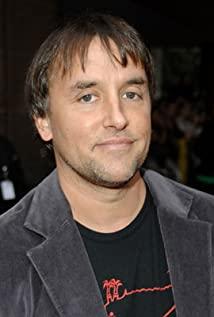Movies are a wonderful thing, especially when you're looking for something. You will find that the blanks of those experiences or the "lost time" have long been answered.
Of course, drama, prose, music, fine arts, every art form has its own genre norms to compensate for the lack of personal spiritual experience. But luckily, by virtue of the dynamism of the film itself, no ancient and venerable art has so far reached as many audiences as the film.
Today we are going to talk about love. Through three classic love movies, maybe I can get a glimpse of the true meaning of love.
No one is young again - "Please call me by your name"
Director: Luca Guadagnino
Even if you are not a good friend, there are two works about same-sex love that everyone should have heard of: one is called "Brokeback Mountain" and the other is "Please Call Me by Your Name" introduced today.
Both films received extremely high reviews, and above all, they express the attitude of "love" rather than "object of love". This is an effort to get rid of labeling, and it is this effort that makes it more obvious than heterosexual romance films.
What is first love like? Through this 17-year-old's summer love, the director shows us what a true unreserved love should look like.
Two of them reveal the film's themes most clearly, one in the classic monologue from my father, and the other in the film's recurring title: Please call me by your name.
"How to live your life is your own business, you just need to remember that the mind and body are given to us only once. Before you realize it, your heart is already exhausted, and as for your body, no one wants to see it anymore. It looks at it, and no one wants to approach it, and now you are full of sadness and pain, don't let these pains go away, and don't lose the joy you feel."
From the point of view of conveying meaning, the monologue of the father is an input from outside. This somewhat "chicken soup" monologue, with its proper location in the film and refined lines, keeps it from being too didactic or overly abrupt. On the contrary, because it is just right, fans have called it the sublimation of the film.
If the father's monologue is the external impetus of the film's attitude towards "first love", then the behavior of the two protagonists calling each other's own names is a more advanced self-awareness.
This is a transmission of a concept that is consistent with our own human sense of shame. No one gets used to calling their own name because it makes us feel awkward, even embarrassed. In fact, it is the same principle as kissing and intimacy: intimacy with others is achieved by repeatedly torturing our sense of shame. This is a manifestation of complete trust in each other. Elio and oliver express their love by calling each other's own name, and also use the response to the call to test each other's feelings.
That's why we're so drawn to this first love, pure, dangerous, and full of holes. It's unsettling for us to sink in, but it's the foundation of a good relationship.
Finding Mr Right in Life: When Harry Met Sally
Director: Rob Reiner
Most professional film critics sneer at "popcorn movies" because they are less artistic than entertainment at best.
But why underestimate edutainment? Take this "Harry Met Sally" as an example. From the perspective of exploring Mr right, the first half of this film is quite interesting.
What is the perfect relationship between a man and a woman? We can probably learn a thing or two from the two stages of Harry and Sally's relationship.
The two in the first stage are destined not to be together. The same youthful spirit. Women are proud, men are unruly. In an 18-hour trip, they have been arguing from the movie to the friendship between men and women, and there is nothing that can be matched. However, although this peer is full of communication barriers, it also implies that they are actually full of personality in essence. Young people with too many edges and corners will always run into a wall, and changes are inevitable. As for the encounter, it is just a matter of fate.
The second stage is the third meeting after fifteen years. At this time, both of them have fallen into the trough of the problem of men and women. One is divorced and the other is broken up. The pride of youth evaporated, and they began to doubt their beliefs. Mutual acceptance came into being, and fate obviously became an important driving force for friendship.
At this time, I returned to the question that the two encountered when they met for the first time. Is there any pure friendship between men and women? Obviously the director's answer is no.
The dialogues between the two protagonists during their friendship are particularly brilliant, about sex, about feelings, about men's ego, and about women's prejudice. In fact, from this moment on, the film has begun to reveal the potential of the two to become lifelong partners. They are all so evenly matched, from the initial run-in, persuading each other, to being able to understand each other and accept each other as confidants, they have actually passed Mr Right's consideration.
As the movie lines say: If I want to spend the rest of my life with you after all, the sooner the rest of my life begins, the better. What is Mr right? Isn't that the time-tested buddy?
Diluted Love and Boundless Life: "Love Before Midnight"
Director: Richard Linklater
Different from the romantic tone of the first two films, the third "Love Before Midnight" restores the movie to life itself.
After being together for ten years, a partner whose passion is no longer lingering, a real and interesting quarrel, an advanced dialogue full of "knowledge points", and the fresh and quiet seaside scenery of Greece. "Before Midnight" made me see the opposite of "Call Me By Your Name". It seems to be trying to prove that long-term love is bound to flourish in life. Its tone is flat, but the core is full of struggle and patience. As Roger Ebert remarked, "it seems to use an invisible lens to record every moment in life".
Love is pure, life is complicated; love is isolated and independent, but life is a melting pot.
But the director didn't stop at those timeless love problems, he tried to give his own solutions, which can be seen in the dialogue after Jesse's quarrel:
"You're like a little girl who wants everyone around you to live in fairy tales. I tell you I love you unconditionally, I try to make you laugh, and I put up with a lot of your bad temper. If you think I'm a dog, always Come back to you, then you're wrong, but if you want true love, that's love. That's life, imperfect but real, and if you can't see it, you're blind."
And the letter at the end from Celine's 80-year-old can be regarded as a stroke of genius, raising the trilogy to a higher level. Everything went back to the beginning, back to the summer of 1994 when they first met, Celine met the boy who took the initiative to strike up a conversation with her...
"Celine, you have entered the best years of your life. Looking back at my age, this middle-aged period is only a little more difficult than when you were 12 years old."
View more about Before Midnight reviews











